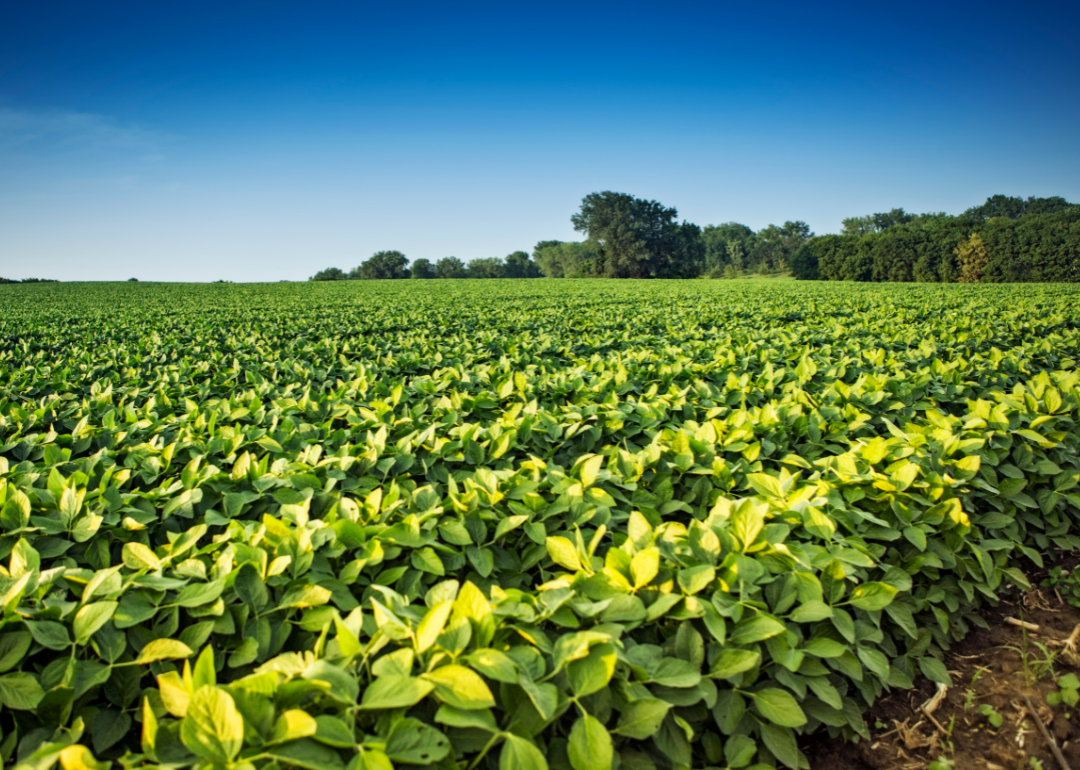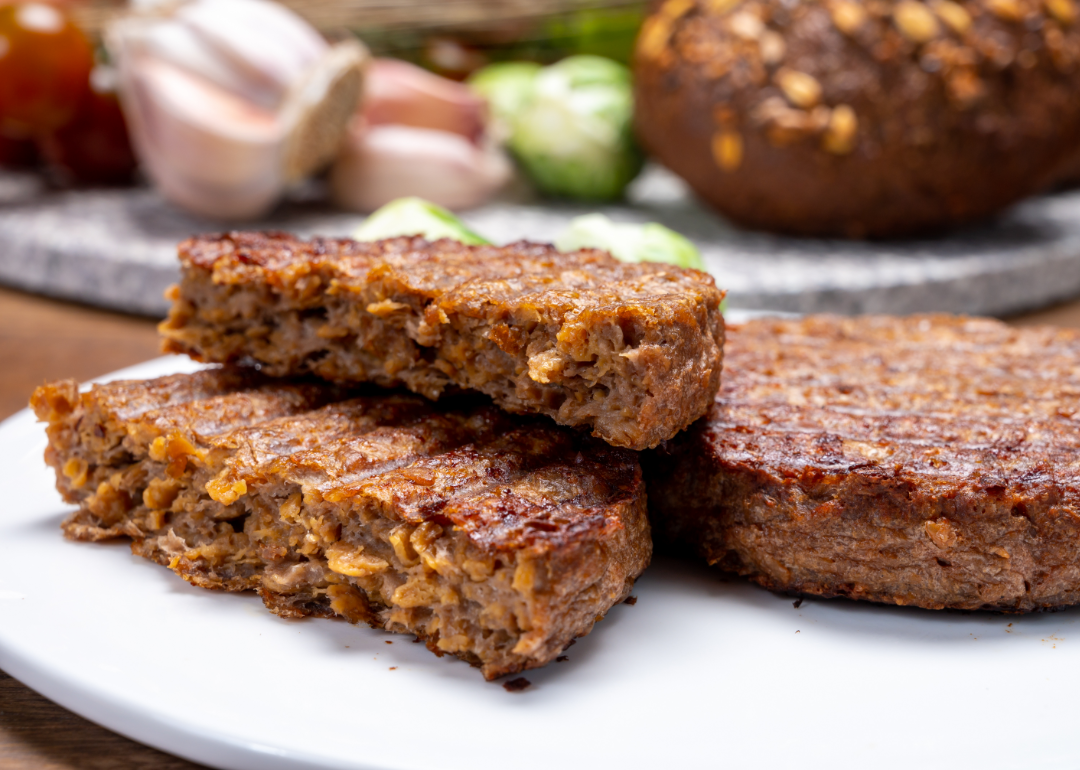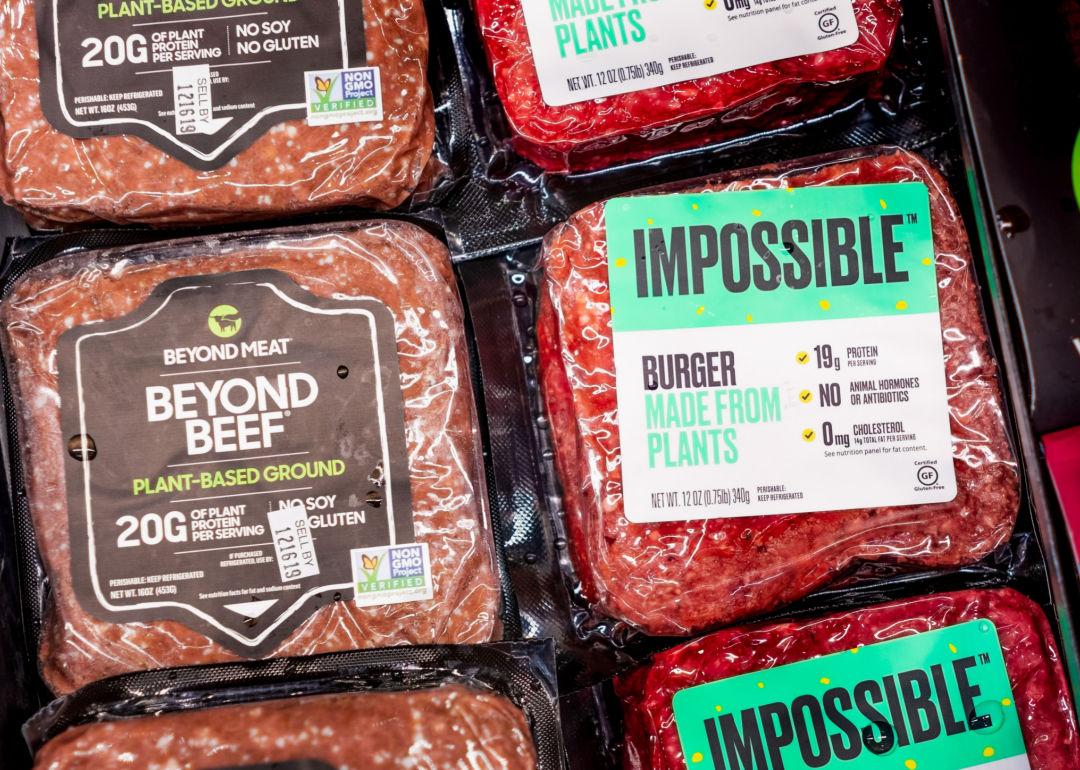Meatless burgers are having a moment. Once the province of vegetarian restaurants and college-dorm kitchens, they’re now turning up everywhere from fast-food chains to big-box grocery stores.
Though some people have long avoided meat for ethical reasons, many today embrace a plant-based diet for its health benefits. Still, others skip meat as a way to combat climate change. For some, all three reasons apply.
Recommended Videos
These instincts are spot on. The current mainstream mode of factory farming is terrible for animal health and welfare. And the highly processed, meat-heavy standard American diet is a key reason more than half of all Americans suffer from chronic illnesses, including type 2 diabetes, cardiovascular disease, cancer, and neurodegenerative conditions. Factory-farmed meat contains higher levels of harmful inflammatory fats, while diets rich in whole, nutrient-dense plant foods support wellness.
Plus, conventional and feedlot livestock leave an outsize carbon “hoofprint”: They’re responsible for roughly 15% of all greenhouse-gas emissions. Each factory-farmed cow releases 220 pounds of methane into the atmosphere every year, and methane warms the air at 28 times the rate of carbon dioxide.
Check out the Florida Foodie podcast. You can find every episode in the media player below:
It’s clear that we need protein sources other than factory-farmed animals for personal and planetary health. Still, many health experts caution that processed meat substitutes may present challenges of their own.
“Today’s faux meats present a conundrum,” says Romilly Hodges, MS, CNS, who directs nutrition programs at Dr. Kara Fitzgerald’s functional-medicine clinic in Connecticut and serves on the board of the American Nutrition Association. “On one hand, reducing the consumption of carbon-heavy animal meats is a good idea for our environment. On the other hand, moving away from real foods to something manufactured with synthetic ingredients in a lab is not good for our health.”

Canva
The Climate Impact of Faux Meat
Meatless options aren't new. Soy-based burgers and hot dogs have been available for decades, and people have been making bean burgers at home for even longer.
But food manufacturers are now creating plant-based substitutes that look, smell, and taste like actual meat, hoping to attract eaters who wouldn't otherwise consider a plant-based burger.
It's working. Today, meatless options that are virtually indistinguishable from beef are widely available. And they're selling — a fact that pleases many healthcare experts.
"Fast-food restaurants are seeing an upsurge of requests, and people are actually eating them there, which is a good sign." says functional nutritionist Mary Purdy, MS, RDN. "I feel very hopeful and delighted that people are beginning to understand the effect of our food system — and specifically livestock production — on climate change. A cultural shift is happening."
Purdy's enthusiasm is tempered by other concerns, though. "I think the climate-conscious picture around food is quite complex," she says. "If we simply stop eating meat as individuals, or reduce how much we eat, that won't necessarily change the current agricultural system. And the processed foods that are used in the creation of faux meats do not necessarily lend themselves to environmental sustainability."
One such ingredient is genetically modified soy, which is one of the most common crops planted in the United States.
Soy is typically grown as a monocrop: One type of plant is cultivated in the same place, in wide swaths, year after year. Without diverse plant matter feeding the soil, it becomes depleted of essential nutrients and microbes, making the plants more susceptible to pests and increasing the need for chemical pesticides.
Soil with fewer nutrients and less microbial diversity also requires fertilizer — lots of it. Fertilizer releases nitrous oxide, a powerful greenhouse gas that increases planetary warming and damages the ozone layer. Levels of nitrous oxide have increased sharply since the 1960s, when inexpensive synthetic fertilizers first appeared on the market.
In short, faux meat has a carbon footprint of its own. The average soy burger adds carbon dioxide to the atmosphere because of monoculture farming, while a beef burger made from a regeneratively raised animal removes carbon dioxide by helping to build topsoil that sequesters it.
"Once you dig into [the connection between climate change and agriculture], you find out there's a lot more than just plant-based versus animal-based protein," says nutritionist Katie Morra, MS, RD, IFMCP. "In the grand scheme of things, a processed-meat substitute is likely a better option than a feedlot-beef patty, but compared to regeneratively raised beef, it may not take the cake."
Conventionally raised beef and lamb are the most resource-intensive of all animal foods. Studies show that in countries where average meat consumption is high ("arguably too high to be healthy," says Hodges), reducing meat consumption can improve the household carbon footprint.
"Instead of switching to industrialized faux meats," says Hodges, "I would steer people toward increasing their whole-plant food intake — especially varied, colorful vegetables, nuts, seeds, whole grains, lentils, and beans. There are plenty of ways to fake a 'meaty' meal with plant options like portobello mushrooms, vegetable and nut patties, and well-seasoned legumes."

Canva
Meat Substitutes and Health
"Plant-based meat alternatives are not created equal," agrees Mark Hyman, MD, founder of the Cleveland Clinic's Center for Functional Medicine. A whole-food organic mushroom or lentil burger is good for you, he notes, but "a highly processed GMO soy burger with 110 times the glyphosate needed to harm your microbiome? Maybe not."
Not only does the glyphosate used on GMO soy appear to harm the gut microbiome, it's been deemed a likely carcinogen by the World Health Organization's International Agency for Research on Cancer. Research also suggests that glyphosate can trouble our endocrine systems.
Newer meat substitutes contain other dicey ingredients. "[A popular fake burger] contains pea-protein isolate, which is a processed pea protein, so it is stripped of many nutrients," says functional-medicine practitioner Liz Lipski, PhD, CNS, LDN. "The canola oil doesn't state that it's organic, which means it is GMO."
A lengthy, unpronounceable ingredients list qualifies a food as "ultraprocessed" — a classification most functional-medicine practitioners encourage us to avoid.
"For variety in my diet, I do enjoy an occasional Beyond Burger, which I think tastes great," says functional-medicine practitioner Robert Rountree, MD. But, he adds, "products like this work best as a transitional food for people who are trying to eat more vegetarian." Long term, such processed foods aren't good for people or the environment.
For strict vegans and vegetarians, a faux burger at a barbecue or on a road trip is a nice treat. Just don't depend on them for protein. "Homemade bean burgers — or lentil soup, beans and rice, or tofu stir-fry — have a comparable amount of protein and less processing," says Purdy.
As ever, the goal is to choose whole foods and preparations that satisfy you and your values. Says Morra: "It may sound too simple, but picking organic, non-GMO, and whole-food sources of protein is the best practice that anyone can follow, vegan or not."

Sundry Photography // Shutterstock
The Newest Meat-Like Substitutes
Beyond Burger and Impossible Burger are now widely available at supermarkets and fast-food restaurants. Both are designed to look, smell, and taste like beef. The two products are relatively equal in terms of calories and macronutrients (protein, fat, and carbs); they're not that far removed from the calories and fat content of a fast-food beef patty, though they deliver more protein.
The real issue lies in the number of ingredients: The Beyond Burger and the Impossible Burger each contain around 20 ingredients, which involves a lot of processing.
To (m)eat or not? These products can be a great option for committed vegans and vegetarians stuck without food options while traveling, when just looking for something easy to bring to a barbecue, or when you're craving the burger experience without the beef. For personal and planetary health, however, it's best not to make them a regular source of protein.
Old-School Supermarket Veggie Burger
Like the newer meat substitutes, most supermarket veggie burgers sport long ingredient lists. That said, some experts find more nutritional merit in them. "There are a few vegan options that are widely accessible that I can get behind when someone is in a pinch," says Morra. "My favorite is likely Sunshine Burgers, which are non-GMO. The ingredients for their Garden Herb burger are as follows: organic cooked brown rice, organic ground raw sunflower seeds, organic carrots, organic chives, sea salt."
She also likes the ingredients in Quorn Meatless Fillets and Dr. Praeger's California Veggie Burgers.
Lipski recommends Gardenburgers for those who want or need a quick meat substitute. "When I read their label, it's at least mainly real food," she says. "The best advice is to read the ingredients list — are the ingredients ones you would use if cooking at home?"
To (m)eat or not? As a processed food, supermarket veggie burgers come with some of the same concerns as the newer meat substitutes, but they can be a great option when you're seeking variety or you're too tired to cook dinner. Look for brands that contain mostly real food.
Seitan
Made from concentrated wheat gluten and high in protein relative to soy, seitan is a processed and potentially inflammatory food. Anyone suffering from celiac disease should avoid it — and even the gluten-sensitive have reason to be wary. In these cases, research suggests gluten may damage the gut lining, which can cause inflammation.
To (m)eat or not? Seitan can be an OK occasional option for gluten-tolerant vegans and vegetarians. It's best used as an occasional special dish, not as part of the daily diet.
Homemade Veggie Burger
Recipes for delicious, nourishing, plant-based burgers abound. Look for ones that use whole-food ingredients, and enjoy.
To (m)eat or not? From a health perspective, and likely from a climate one, too, making your own plant-based burger is the winner. You can find recipes that combine phytonutrient-rich and protein-dense whole foods to create satiating, decadent meals. "It's pretty simple to cook some beans and add grains and onions and spices to make your own burgers," says Lipski.
Tempeh
Fermentation makes tempeh's protein more digestible, and its nutrients more bioavailable, than those of other soy foods. This gives it a leg up on tofu as well as other forms of nonfermented soy.
Tempeh also features a nice short ingredients list. When it contains items other than soy and culture, it's usually just seeds and seasoning.
To (m)eat or not? Tempeh is among the least processed of all soy foods, and fermentation makes it the most digestible. While some research has highlighted potential health risks from eating a lot of soy, tempeh makes a good plant-based protein that you can enjoy more often than some others — just make sure it's non-GMO soy.
Grilled Portobello Mushroom
The ultimate whole-food, plant-based meat substitute! One ingredient and great all-natural meaty flavor. The only downside is the mushrooms' relative lack of protein, so if you make a mushroom your main course, you may not feel truly sated at the end of your meal. Grilling can also create carcinogenic compounds.
To (m)eat or not? Enjoy in abundance! Pair your grilled mushroom with legumes, tahini spread, or another source of protein to increase satiety. Marinating mushrooms in a teriyaki or turmeric-garlic sauce before putting them on the grill can add even more vibrant flavor.
Falafel
Falafel is a Middle Eastern mixture of chickpeas, herbs, and spices, shaped into a ball. It's a good source of protein and contains only whole foods. It's traditionally deep-fried, however, which isn't ideal: Very high heat can transform even a healthy oil into a trans fat.
To (m)eat or not? Falafel's ingredients are great, though its traditional deep-fried preparation method may negate some of its benefits. Enjoy falafel primarily at home, where you can fry it lightly in olive oil or bake it. Enjoy restaurant falafel as an occasional treat.
This story was produced by Experience Life and reviewed and distributed by Stacker Media.
Find every episode of Florida Foodie on YouTube: